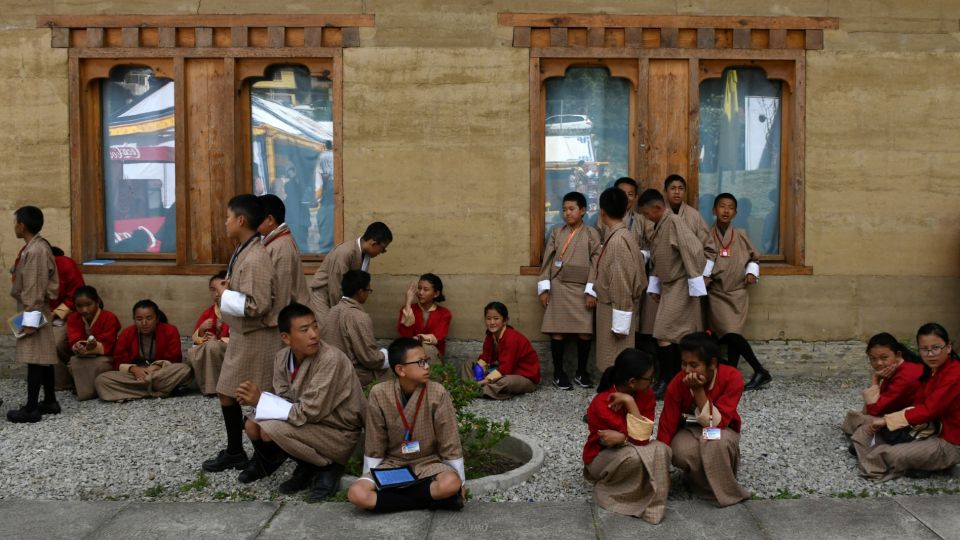September 24, 2025
THIMPHU – Teachers across the country continue to display strong confidence in their classroom practices and assessment approaches, according to the National Education Assessment (NEA) 2024.
The report states the widespread use of learner-centred teaching and feedback practices. However, it highlights persistent gaps in the availability of teaching and learning materials (TLMs), training in inclusive education, and the use of ICT resources.
According to the survey results, teachers in grades III and VI understand the need for assessment and provide oral and written feedback to students regularly. “Most teachers also design assessment tasks to monitor students’ learning progress and ensure students are aware of how they are being assessed,” the report states.
Some practices, such as providing oral feedback, written feedback, and using assessment tools appropriately received slightly lower mean ratings from Grade III teachers in 2024 compared to 2021. However, overall confidence levels remain high.
Students also report positive classroom experiences. For instance, 93 percent of Grade III and 96 percent of Grade VI students said their teachers encourage them to ask questions, while over 90 percent stated that their teachers provide guidance on how to improve their learning.
Gaps in resources
Despite strong teaching practices, the NEA reports highlight significant resource gaps.
Most of the principals stated that textbooks for Mathematics, Dzongkha, Science, and English are inadequate or in good condition. In contrast, between 27 and 37 percent report that TLMs for core subjects are either unavailable or in poor condition.
“Most students and school leaders cited a lack of inclusive facilities and adequate teaching and learning materials,” the report states.
Textbooks were in better condition than TLMs, with 84 to 89 percent of principals indicating they were adequate or of good quality.
Conversely, TLMs for students with disabilities were largely unavailable with about 41 percent of principals saying such resources did not apply to their schools, while another 41 percent stated they were simply unavailable.
The NEA also observed that teachers seldom engaged students in extracurricular work. The use of ICT resources, while existent, was inconsistent, receiving ratings between 2.4 and 3.1 on a scale of 1 (minimum) to 4 (maximum) for tools such as online videos and digital resources.
The report also states that teachers often seek help from colleagues and gather feedback from students, indicating engagement in reflective practices. Less common activities include reviewing lessons through video recordings and conducting action research. However, action research has increased among Grade III teachers since 2021.
According to the report, professional development (PD) ratings were generally moderately positive. The perceived impact of action research saw an increase, rising from 2.3 in 2021 to 3.4 in 2024 among Grade III teachers.
“Many teachers participated in fewer than 10 hours of PD in key areas. Participation in inclusive education and action research was particularly low, with 42 percent of Grade III teachers and 48 percent of Grade VI teachers reporting no PD in inclusive education,” it states.
Principals supported teachers’ views, stating that most PD programmes had a moderately positive effect on professional growth. However, significant gaps remain in critical areas such as basic counseling, inclusive education, and action research.
The report highlighted a decline in PD for ICT and 21st-century skills between 2021 and 2024. In fact, 42 percent of dzongkhags provided no PD on 21st-century skills, and 29 percent offered no ICT training.
Grade III students reported receiving less homework in Dzongkha and Mathematics compared to 2021, while Grade VI students reported more homework in Dzongkha. Despite these shifts, overall student perceptions of teaching practices remained positive.
The report recommends that the Ministry of Education and Skills Development strengthen policies to ensure all schools consistently provide and maintain high-quality TLMs.
It also recommends expanding training in inclusive education for teachers and increasing the integration of ICT in teaching.
“Strengthen policies to ensure consistent provision and maintenance of high-quality TLM across all schools,” the NEA states. “Expand inclusive education training for teachers and ensure the availability of suitable TLM for students with disabilities.”


